Air travel has become an essential part of modern life, connecting people across continents and cultures. However, the confined space of an airplane can lead to discomfort if passengers are unaware of or choose to ignore basic etiquette. From safety instructions to personal space, understanding what not to do on a plane is crucial for a pleasant journey. This article aims to shed light on the common mistakes and misconceptions about behavior on a plane, providing readers with a comprehensive guide to ensure a comfortable and considerate flying experience.
Contents
- 1 Ignoring Safety Instructions
- 2 Misusing Overhead Bins
- 3 Reclining Seats Without Notice
- 4 Disregarding Personal Space
- 5 Overindulging in Alcohol
- 6 Misusing the Restroom
- 7 Disrupting Others with Noise
- 8 Inappropriate Interactions with Crew
- 9 Handling Food and Allergies
- 10 Failing to Prepare for Health Needs
- 11 Navigating the Skies with Consideration and Respect
Ignoring Safety Instructions
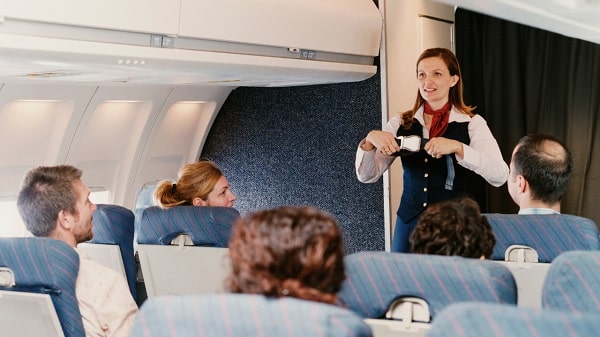
Safety instructions are integral to every flight, yet many passengers overlook their importance. Whether it’s a routine demonstration by the flight attendants or a video presentation, these instructions are designed to protect passengers in emergencies. Ignoring them jeopardizes personal safety and reflects a lack of consideration for others on board. By actively engaging in these demonstrations and reading the safety card, passengers can contribute to a safer and more responsible travel environment.
The consequences of ignoring safety instructions can be severe, ranging from minor injuries to life-threatening situations. Understanding how to use the oxygen mask, locate emergency exits, and assume the brace position can make a significant difference in an emergency. These instructions are not mere formalities but carefully crafted guidelines based on years of research and real-life experiences. By paying attention and following them, passengers affirm their commitment to their safety and the well-being of those around them.
Misusing Overhead Bins

Overhead bins are a common feature on airplanes, providing passengers with space to store carry-on luggage. However, misuse of these compartments can lead to delays, inconvenience, and even injury. Storing oversized bags, placing heavy items improperly, or cramming belongings without regard for others are mistakes that can disrupt the boarding process. Proper utilization of overhead bins ensures a smoother experience for everyone on board.
Efficient and considerate use of overhead bins involves understanding the airline’s baggage policy and packing accordingly. It means placing bags in the designated compartments and assisting others if needed. Being mindful of the space and recognizing that it is shared among fellow passengers promotes a sense of community and respect. It’s not just about finding a spot for personal belongings; it’s about contributing to a harmonious travel experience.
Reclining Seats Without Notice

Reclining seats on a plane offer comfort, especially during long flights. However, abruptly reclining without notice can cause discomfort or even harm to the person seated behind. A sudden recline might spill their drink, damage their laptop, or invade their personal space. Communicating intentions and reclining slowly shows consideration for fellow passengers and enhances the overall travel experience.
The etiquette of reclining seats goes beyond mere communication. It involves understanding when it’s appropriate to recline, such as avoiding meal times or when the passenger behind is using a laptop. Being observant and empathetic to others’ needs creates a more pleasant atmosphere. After all, a little courtesy goes a long way in turning a cramped cabin into a comfortable journey for all.
Disregarding Personal Space
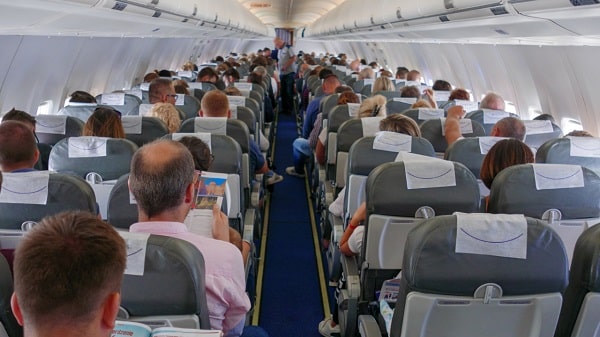
Personal space is a valuable commodity on an airplane, where passengers are seated in close proximity. Disregarding this space by sprawling limbs, encroaching on shared armrests, or leaning on fellow passengers can lead to discomfort and tension. Being mindful of body language and maintaining a respectful distance fosters a more relaxed and enjoyable flight. Recognizing that personal space is a shared responsibility ensures everyone’s journey is as comfortable as possible.
Respecting personal space also extends to personal belongings. Placing bags or items in a way that invades others’ space or using shared facilities without consideration can create unnecessary friction. By being aware of the surroundings and treating fellow passengers with respect, a sense of community and cooperation can be nurtured. This enhances the travel experience and builds a positive atmosphere within the cabin.
Overindulging in Alcohol

While enjoying a drink or two on a flight can be a pleasant way to pass the time, overindulging in alcohol can lead to problems. Excessive drinking can cause disruptive behavior, affecting the comfort and safety of other passengers. It may also lead to legal issues, as airlines have the right to refuse service or even involve authorities if necessary. Moderation in alcohol consumption is key to maintaining a pleasant and respectful environment on board.
The impact of overindulging in alcohol extends beyond immediate behavior. It can lead to dehydration, exacerbate jet lag, and affect overall health during travel. Being mindful of alcohol intake and recognizing its potential effects at high altitudes ensures a more comfortable journey. It’s not just about personal enjoyment; it’s about being considerate of how actions might affect others and oneself in the unique environment of an airplane.
Misusing the Restroom
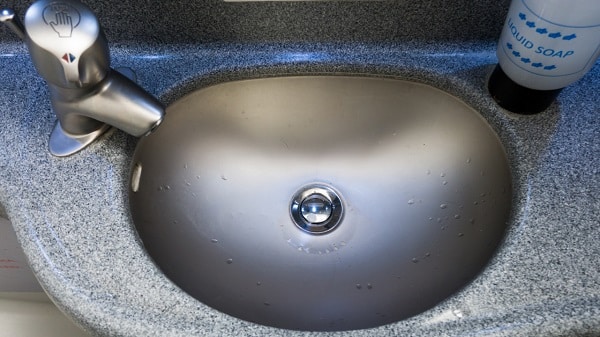
Airplane restrooms are shared facilities, and misusing them can inconvenience fellow passengers. Leaving the restroom in a messy condition, spending an excessive amount of time inside, or forming long queues can disrupt the comfort of others. Proper restroom etiquette involves keeping the space clean, being efficient with time, and being considerate of those waiting. These simple acts of courtesy contribute to a more pleasant travel experience for everyone.
Being mindful of restroom usage also means recognizing appropriate times to use the facility, such as avoiding critical moments like takeoff, landing, or meal service. Communicating with flight attendants and understanding the onboard rules ensures that restroom usage aligns with safety and service protocols. By treating the restroom respectfully and following the guidelines, passengers demonstrate consideration for fellow travelers and the flight crew.
Disrupting Others with Noise
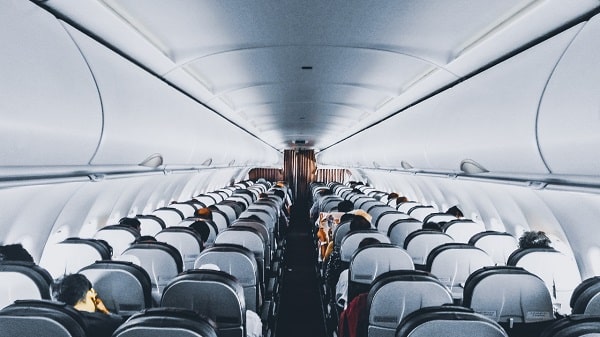
Noise can be a significant source of disruption on a flight, whether it’s loud conversations, noisy children, or the sound from electronic devices. Using headphones, keeping conversations at a reasonable volume, and being mindful of children’s behavior is essential for maintaining a peaceful environment. Recognizing that noise carries in the confined space of an airplane and taking steps to minimize it shows empathy and respect for fellow passengers.
Controlling noise levels is not just about immediate comfort; it also affects passengers’ ability to rest, work, or enjoy their journey. Persistent noise can lead to stress, fatigue, and a negative travel experience. Being aware of the impact of noise and actively working to minimize it creates a more enjoyable flight for everyone. It’s a shared responsibility that enhances the sense of community and cooperation on board.
Inappropriate Interactions with Crew
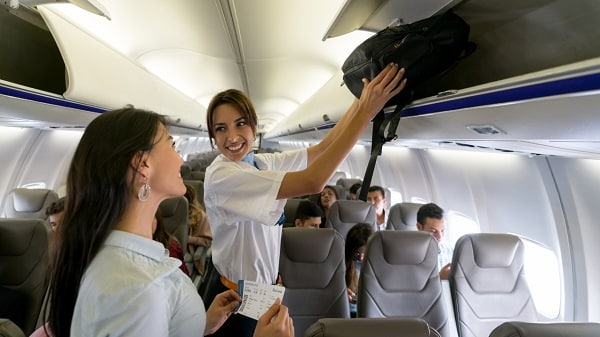
Flight crew members are professionals dedicated to ensuring passengers’ safety and comfort. Inappropriate interactions, such as unnecessary demands, rude behavior, or personal invasions, can hinder their ability to perform their duties effectively. Treating flight crew respectfully and understanding their responsibilities is essential for a harmonious travel experience. Recognizing their role and showing appreciation fosters a positive relationship between passengers and crew.
Understanding that flight attendants are not personal servants but trained professionals helps set the tone for appropriate interactions. They are there to assist with legitimate needs and ensure safety, not cater to whims or unreasonable requests. By engaging with them respectfully and appreciating their efforts, passengers contribute to a pleasant and cooperative atmosphere on the flight.
Handling Food and Allergies
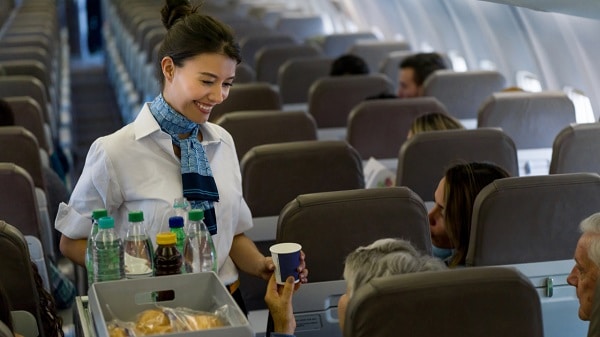
Handling food on a plane requires consideration for fellow passengers, especially regarding allergies. Strong-smelling foods can be unpleasant in a confined space, and certain allergens can pose serious risks to those with sensitivities. Communicating allergies to the flight crew and being mindful of the food brought on board shows empathy and awareness. It’s about creating a safe and enjoyable dining experience for everyone.
Being considerate with food also involves following the airline’s guidelines and being mindful of meal times. Eating loudly, making a mess, or disregarding the needs of fellow passengers can disrupt the overall experience. By being attentive to personal behavior and the needs of others, passengers can enjoy their meals without negatively impacting those around them.
Failing to Prepare for Health Needs
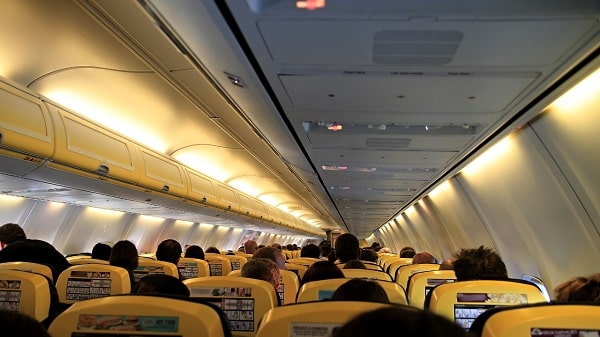
Preparing for personal health needs is a vital aspect of travel, especially on a plane where resources may be limited. Failing to carry necessary medications, neglecting to consider motion sickness, or ignoring the potential effects of pressure changes can lead to discomfort or serious health issues. Being proactive about health needs ensures a more comfortable journey and reduces the risk of medical emergencies.
Understanding personal health needs also involves communicating them to the flight crew if necessary. Whether it’s a dietary restriction, a medical condition, or a need for specific accommodations, clear communication helps the crew assist effectively. Taking responsibility for personal health not only enhances individual comfort but also contributes to the overall well-being of everyone on board.
Air travel is a complex experience that requires cooperation, empathy, and understanding from all passengers. From respecting personal space to preparing for health needs, the guidelines outlined in this post provide a roadmap for considerate and responsible behavior on a plane. By embracing these principles, passengers can contribute to a more pleasant and harmonious journey for themselves and those around them. The essence of airplane etiquette lies in recognizing the shared nature of the experience and working together to make it enjoyable for all.


